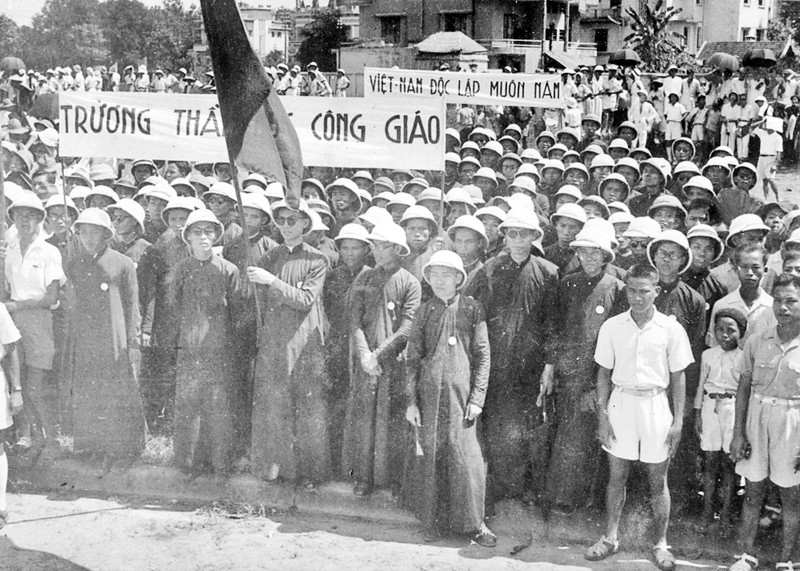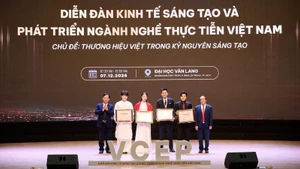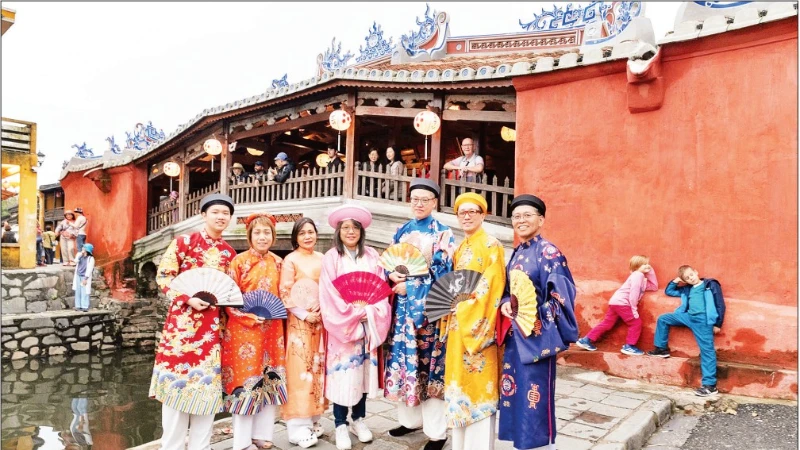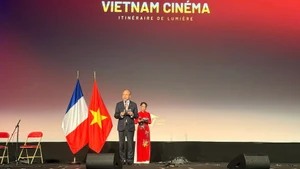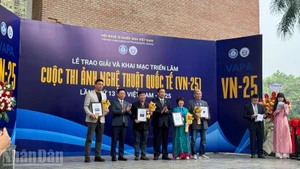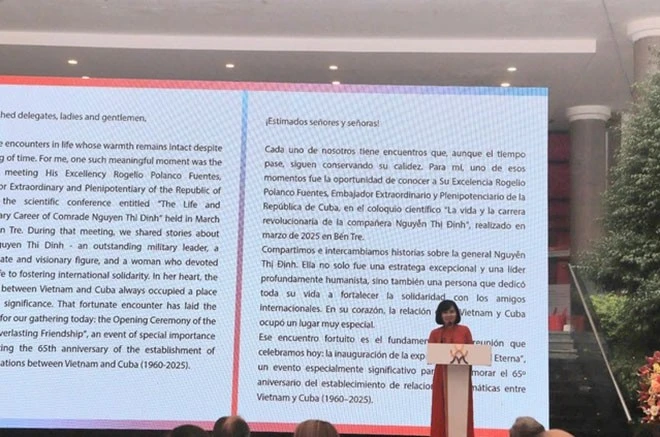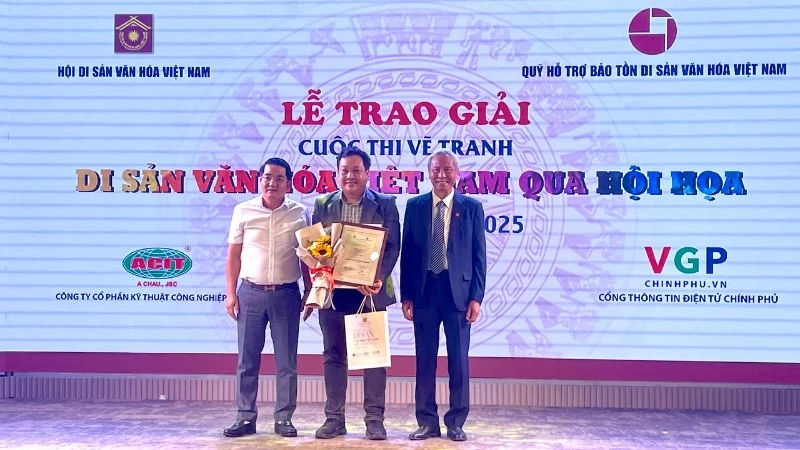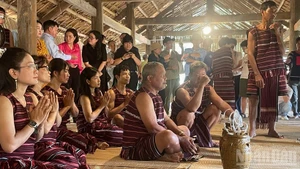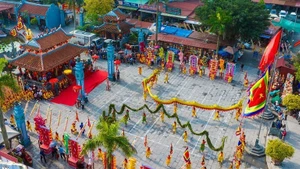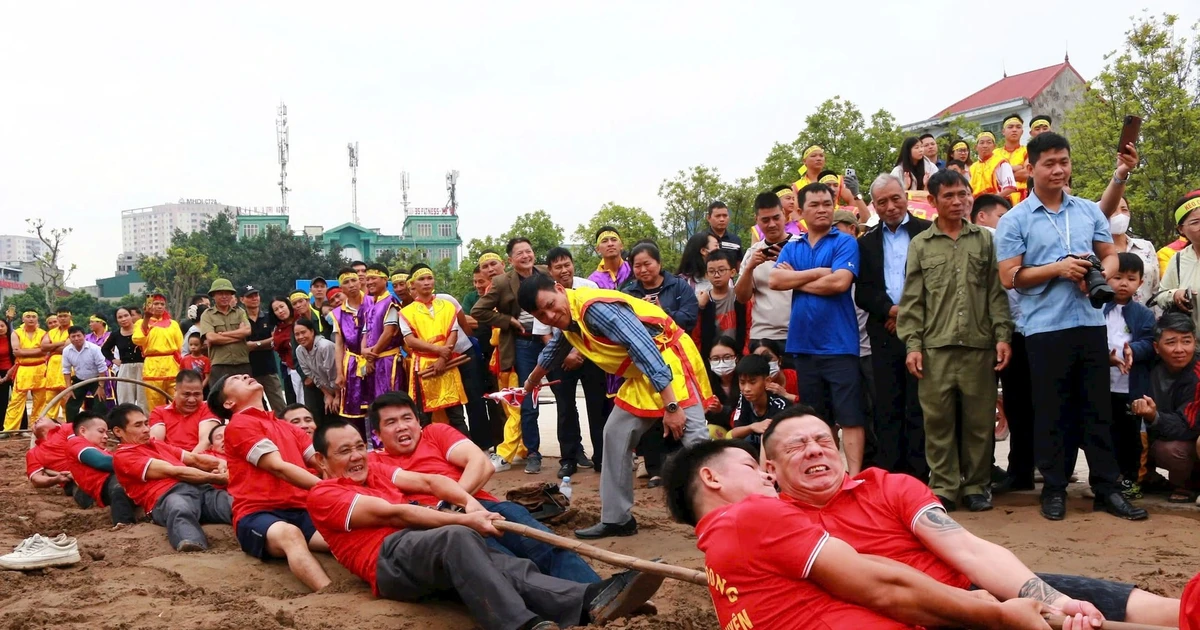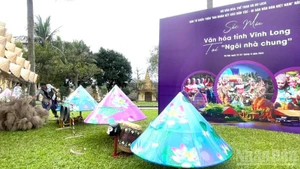At over 90 years old, Cong Thi Thu waits eagerly every day for news about the grand celebration of the 80th anniversary of the August Revolution and National Day, September 2. This year there will be a huge parade. The parade units are training in Thach That… Every time she hears new information, she proudly shares it with her children and grandchildren. As the celebration draws nearer, she dresses neatly and tells them: “Take me back to my birthplace. I want to personally clean and tidy the house…”
Back then, little Thu was just over ten years old. She often noticed her family welcoming unusual guests who came, discussed things in hushed tones, and left quietly. One afternoon, the family received a very special visitor. An elderly man, tall and slim with bright eyes. He was greeted with particular respect. The little girl was asked to boil water to serve him and received a kind smile from the old man. She did not know who he was; everyone only said he was a “superior officer.” One afternoon in late August, that guest bid farewell and quietly left.
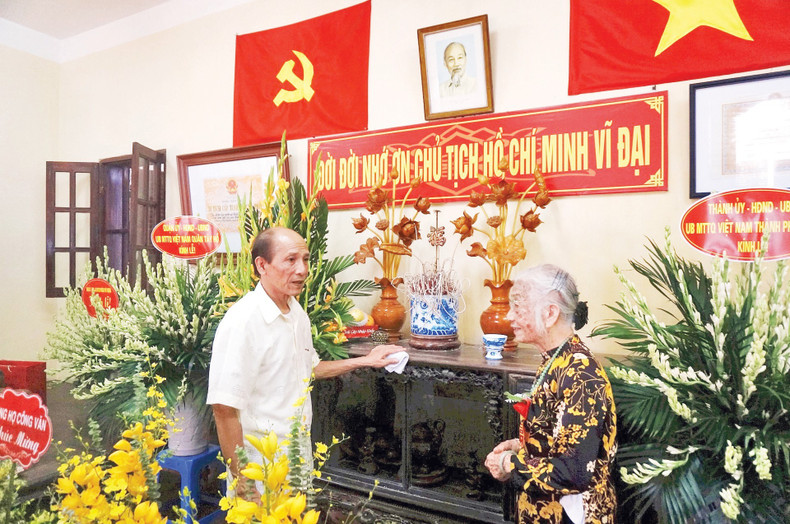
A few days later, little Cong Thi Thu, dressed neatly with the children’s team, was taken to a place vast and crowded. Adults told her it was Ba Dinh Square. On the high platform, many spoke. She noticed a tall, slim old man—looking very much like the “superior officer” who had come to her house. She wondered. He asked: “Compatriots, can you hear me clearly?” A thunderous “Yes!” shook the square. The voice was familiar. She almost cried but still doubted. When he finished reading, the crowd erupted in cheers. She shouted too. From now on, the country was independent. But she was still puzzled…
“When I came home, some guards of the superior officer were still there. One asked me: ‘Did the old man who read the Declaration of Independence look like the superior officer who visited your house?’ I said he looked very similar, the voice too, only the clothes were different. But there, people did not call him ‘superior officer’; they called him Uncle Ho Chi Minh. They praised me for being clever and told me the superior officer at my home was Uncle Ho himself. Oh, how overjoyed I was! I jumped up and down. That was the moment I realised the man at my house had been Uncle Ho,” recalled Thu.
At over 90, Cong Thi Thu still waits daily for news about the grand 80th anniversary celebrations of the August Revolution and National Day.
Thu’s mother was Nguyen Thi An. Their house has since been donated by the family to the State as a memorial to Uncle Ho’s activities, and it has become a National Historic Site. Her nephew, Cong Ngoc Dung, regularly looks after it. Yet on major occasions, especially National Day, Thu always returns to that house.
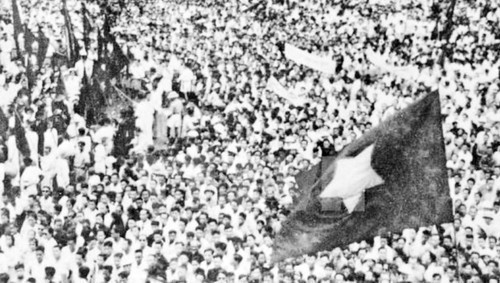
Eighty long years have passed, with countless events. The boys and girls who lived through that extraordinary day, like Thu, are now in their nineties. The events of that day are now like a film — sometimes fading, sometimes vivid. Yet the spirit of the people, the strength of unity, is something anyone can still feel clearly, no matter their age.
“On August 19, I joined the masses seizing power at the Bac Bo Phu. We followed the call of the revolution. That was the spread of the revolution among the people. The revolution responded exactly to their will and aspirations. Everyone hated the French, hated the Japanese, and longed for independence, so the atmosphere was explosive. I myself knew that our country had lost independence and freedom. The older youths said this was a once-in-a-lifetime chance to break free from slavery. So when the movement began, everyone was determined to surge forward,” recalled Dang Van Tich.
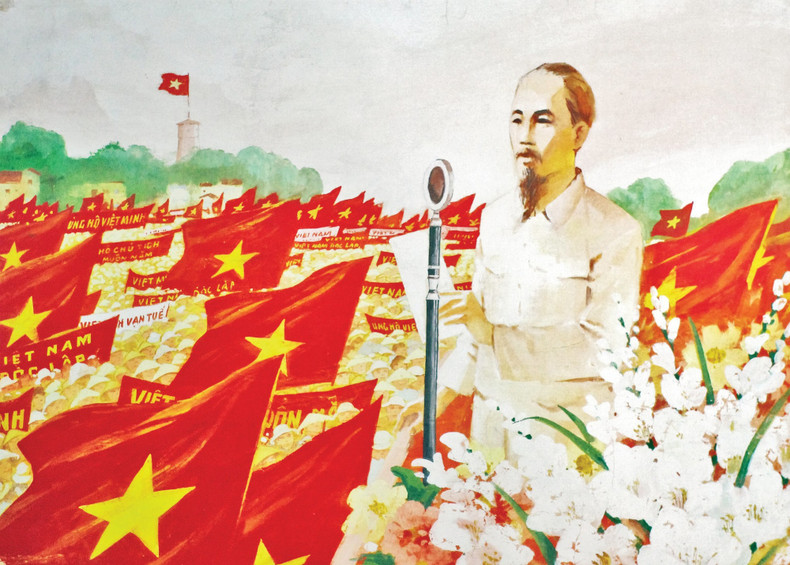
A few days later, young Tich was present at historic Ba Dinh Square in the sacred moment when President Ho read the Declaration of Independence. Standing far away, he could only see the high platform and the surging crowd. “I couldn’t see Uncle Ho clearly, but I was indescribably happy. From now on, there would be no more French or Japanese oppressing and beating our people.”
A year after Independence, just one year older, Tich had already changed. Many days he secretly watched members of the Self-Defence Force and the National Guard Corps training. He began to understand more deeply the meaning of independence and freedom, and the state of the country. By the end of 1946, when Hanoians evacuated in preparation for the National Resistance War against the French, who had returned to invade, the boy decided to stay. This time it was a conscious decision—ready to sacrifice his life to defend the capital and the independence. Dozens of other boys and girls like him did the same. The National Guard called them affectionately “Ve Ut” (the youngest guards). Now at 93, Dang Tich is one of the last living “Ve Ut.”
Ha Noi is a city of memory. The memory of Ha Noi is cherished and preserved in many ways. One place that spreads the memory of old Ha Noi and is favoured by young people is Pho Hang Café—a cultural space by the Red River, right under Long Bien Bridge. The space was created by a young Hanoian, Do Anh Duc, who felt a duty to preserve and spread the values of old Ha Noi.
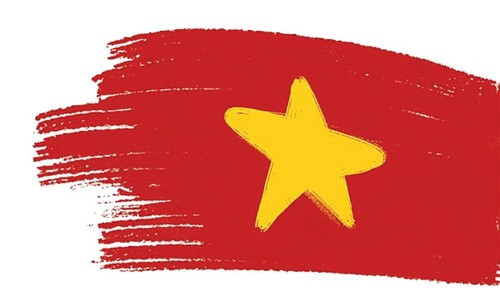
For Duc, the 80th Independence Day anniversary is a perfect occasion. A major programme is being held at Pho Hang Café for an entire month. Its nostalgic spaces are filled with red, with a series of events. There, young people can check in to show patriotism; mooncakes are made with the image of the red flag with a yellow star; every drink is served with a Vietnamese flag. There are film screenings about the September 2, 1945 Declaration of Independence, and offline sessions on the history of Ha Noi, recreating the atmosphere of that day at historic Ba Dinh Square. Duc said he only hopes that Cong Thi Thu remains in good health so that she can come and share her memories of that Independence Day with the youth.
Without the need for campaigns or directives from authorities, that space is nurtured and built with love—the love of an individual for the homeland, blending with the love of the community. And the stories of Independence Day then and now, along with the red of Pho Hang Café in these autumn days, are proof of the inheritance, continuation and respect for the past by today’s young generation.
